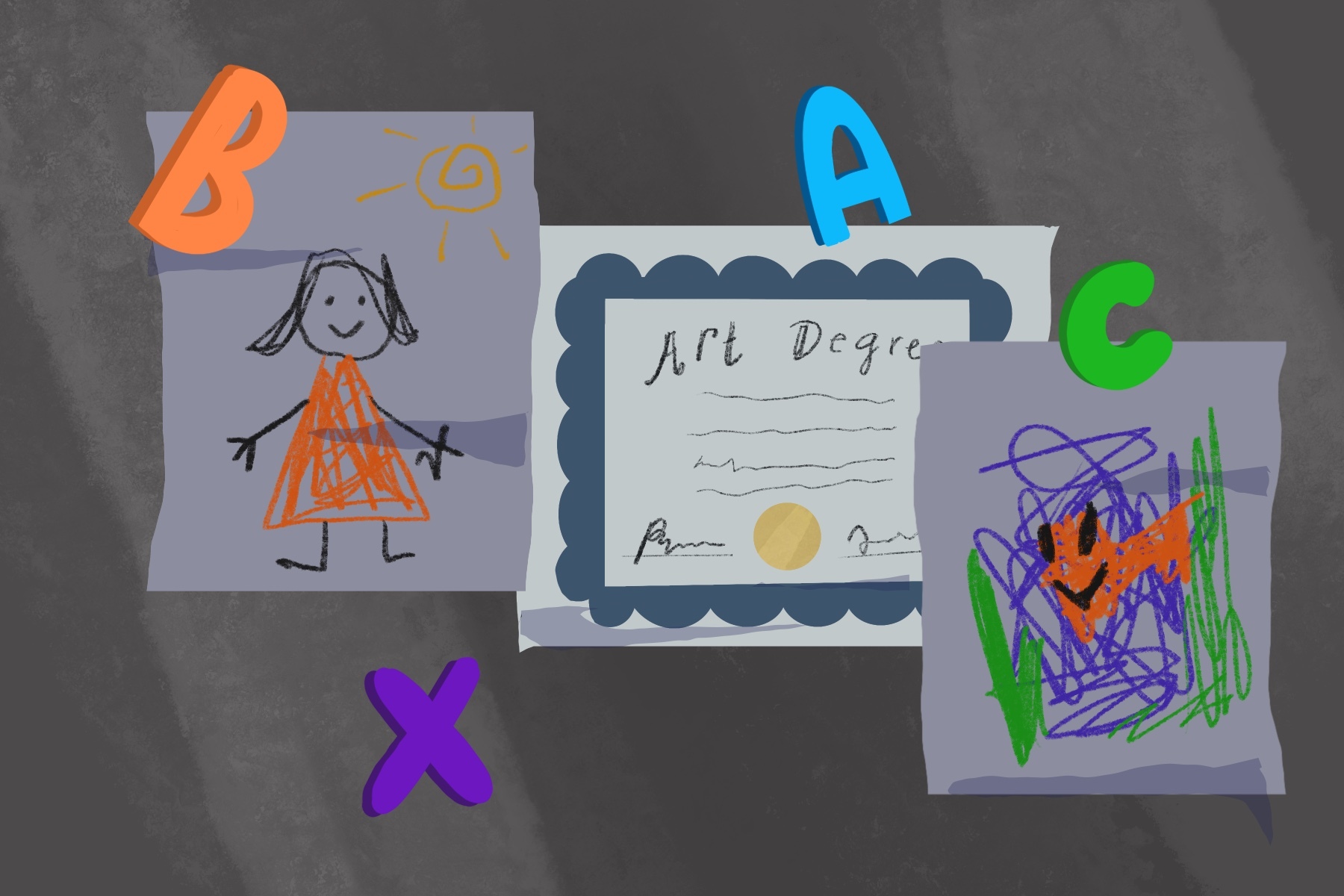Currently in my fourth year of a law/arts dual degree, I have gained some perspective on both of my degrees and the opportunities they’ve presented. Studying a law/arts dual degree often feels like living in two separate worlds. The law school world is extremely analytical, structured and competitive. It’s constantly busy, and there is always more to do, but I enjoy the hustle of it. Nothing beats checking everything off a packed to-do list and getting ahead on weekly readings. In total contrast, the world of my arts degree is much more open. I major in writing, which has exposed me to all kinds of creative and academic writing styles.
Because arts degrees are so broad, with more than 45 areas of study available under the Bachelor of Arts at my university (from ancient Greek to linguistics to studies in religion), it’s relatively rare to find people in the exact same program as me — I think I’ve met two of these people on campus in four years! This means that my writing courses are often a revolving door of different students — some I might see again next semester, some I might never see again. I’ve spoken with all kinds of people from different generations, cultures and backgrounds in my arts classes and I’m better for it.
When I was in high school, I always thought I’d get a journalism degree. When I told my family this, my abuela smiled a well-meaning, “as long as you’re happy” smile. My grades in high school were great, and I was well on track for getting into the top universities in my state. Being the first in my immediate family to graduate high school and attend university, I knew that my family wanted me to be happy in whatever degree and career pathway I chose; but I also felt a sense of pressure to make it count — to make them proud, and to take the opportunities they didn’t get. When final grade predictions were released in grade 12, and I knew I’d get a higher OP score than what I needed to get into journalism, I had a dilemma.
Did I stick to the plan, or shoot higher? My teachers told me it would be a shame to “waste” a good OP score on a course with lower entry requirements. I quickly realized that journalism wasn’t exactly what I wanted — it was the writing I was chasing most of all. When I realized that creative writing was more my style, I was even more afraid — how was I going to tell my abuela I wanted to pursue an arts degree? I felt like I had to pair it with something “more practical.” The stigma about arts degrees ran deep in my own mind, way before I’d even set foot on a university campus. I’d often heard that people who studied arts degrees ended up “pouring concrete on the side of the road” or “working in cafés forever.” I figured I’d always enjoyed legal studies and English in high school, so I decided to combine them. I listed a law/arts dual degree at my dream university as my top preference, and then I waited.
Just before Christmas, I got the scores I needed to get in. Then, a law school scholarship (making the textbook costs doable), conditional on receiving an offer. On one Sunday afternoon in January, years of work paid off: a place in a law/arts degree, commencing in a few short months. (I cried, a lot.)
I don’t regret choosing a law degree at all; I’ve learned so much from my years at law school and I’m so incredibly grateful for the opportunities the faculty provides its students. But I believe my law studies have been supplemented greatly by my arts degree, and that I’m more well-rounded for it.
In the first year of my arts degree, I spent an entire semester learning about academic writing. I’ve taken those skills with me into every essay since. I’ve taken courses on poetry, professional communication, screenwriting and genre fiction. I’ve written loglines and plays and novel plot summaries. What I love most about my writing courses is that they teach you to view the world more creatively, romantically and microscopically, and then they teach you how to find the words to describe it. Arts degrees teach you how to surrender those words up for feedback, and how to give feedback in return. In my creative non-fiction course this semester, my tutor encouraged the group to go on a walk during class and write down everything we noticed, from birdsong to shouted coffee orders from a café nearby. Arts degrees are full of teachers and students who love paying attention to the small things and who want to make the world a little better — and I’m proud to be a part of it all.
Being a writing major has taught me how important it is to maintain connections. Every writing lecturer and tutor I’ve encountered has been more than happy to talk about career options and ways to get work published. When I had to take a dramaturgy course in my third year, I was terrified — I had never even taken drama in high school! It was one of the compulsory courses for my degree, but I was surrounded mostly by drama majors with much more experience than me. After furiously scribbling down notes in class and absorbing peer feedback, the short play I wrote was selected for a student-run theater festival. Seeing my own work performed on stage was surreal and I’m so grateful for the opportunity. I’ve also organized meetings with professors who have spent hours at coffee shops talking me through how they became a lecturer, and how I could do the same. Courses are often structured in a way that prepares you for submitting work for publication, and lecturers are always posting links to new magazines and journals. The support is there whenever you’re ready to ask for it.
The journey into my arts degree was a little rocky, mostly due to the stigma I’d heard growing up, but I’m so glad I took it on. Writing creative assignments for my arts degree is often my “reward” after getting my law study done. My arts degree is the best decision I could have made for myself. It’s kept me passionate (and sane) throughout my years at uni, and I wouldn’t change it for the world.

















